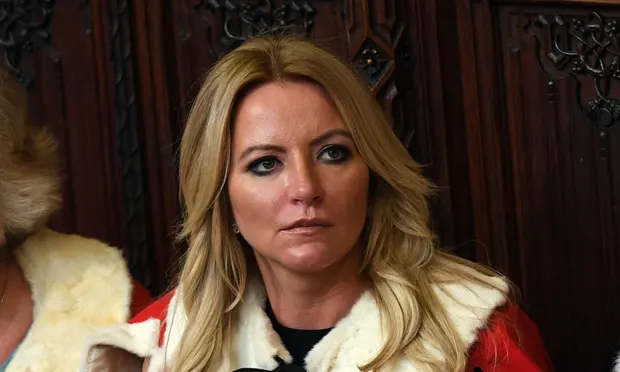Peers and MPs should have to declare any links to firms they recommend for contracts even in an emergency such as the Covid pandemic, the head of the National Audit Office (NAO) has said, in the wake of the PPE controversies including the Michelle Mone scandal.
Gareth Davies, the auditor and comptroller general at the NAO, said keeping on top of conflicts of interest was a “crucial part of public stewardship” that was not always followed during the VIP fast lane process.
He said the government had given detailed responses on how it would improve its processes after reports from the NAO and others highlighting a failure to adhere to basic standards of procurement when awarding some contracts during the pandemic.
But the auditor general said the NAO was watching closely to make sure its recommendations on procurement and pandemic preparedness “do not get lost” as the government deals with other crises such as Ukraine and high energy prices.
“We are always careful to recognise the exceptional circumstances but despite the intense pressure it is always necessary to cover basic areas of transparency,” Davies said.
“Publishing what you’ve done within the normal timescales is still possible even in an emergency and the whole process around conflicts of interest.
“You may well need a speeded up system for referring plausible suppliers of PPE into the system but you should absolutely insist that people should declare it if they have a private interest in that supplier, particularly if they are holding a position of authority or responsibility like a peer or an MP or a senior civil servant. That just couldn’t be demonstrated.
“There were clearly people attempting to do that at different stages but there wasn’t a clear trail of how that had been handled. The reason was the sheer pressure of the emergency but you can see now where that leads you if you are not careful.”
Davies gave his assessment after the NAO carried out 36 detailed reports on the £300bn of government’s spending during the Covid pandemic.
In an interview with the Guardian, he said the NAO was looking carefully at resilience to help the UK become better financially prepared for events that may require big public spending, guarding against the “collective failure of imagination” to prepare adequately for a major pandemic.
He said there would be better “stress testing” of emergency responses, and the NAO would look at preparedness across the board, asking: “How do you avoid being caught out by this?”
“You could argue it has happened on more than just Covid. What’s happening on energy is pretty unprecedented and needs another emergency scheme developed at high speed from scratch. We don’t want to have to do that every time,” he said.


